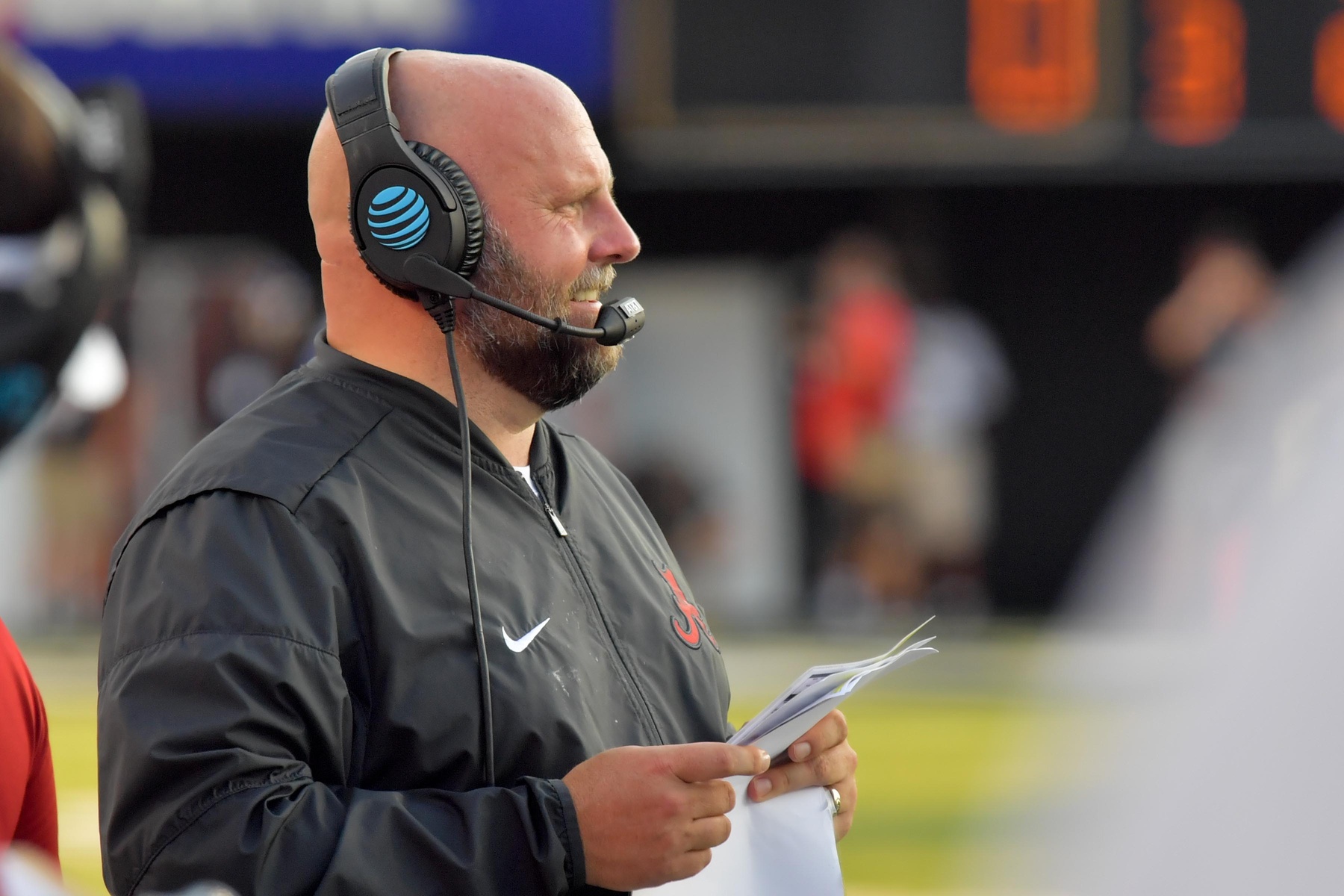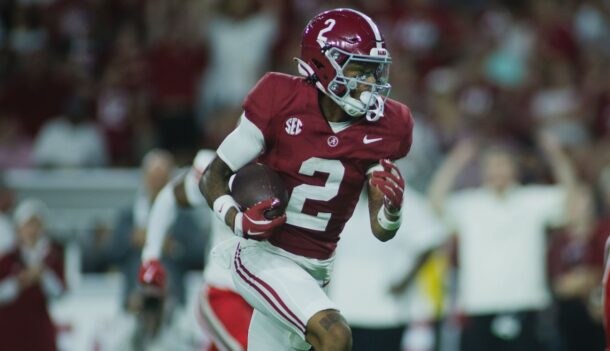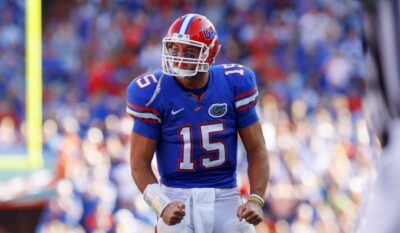
Grading Alabama OC Brian Daboll’s offense after one month: What’s not to like?
By Clint Lamb
Published:
When Lane Kiffin left Tuscaloosa to become the next head coach at Florida Atlantic, it was expected that another former USC head coach would become Alabama’s offensive coordinator.
Instead, Steve Sarkisian decided to leave after one game to become the play-caller for the Atlanta Falcons, leaving the Tide scrambling for another capable coach to call the offense.
Is it possible that this chain of events benefited Alabama’s program more than any other offseason development?
The answer is yes. And it’s not just possible, it’s likely.
New offensive coordinator Brian Daboll was brought in from the New England Patriots, a team that has fielded one of the NFL’s most successful offenses over the course of the last 17 years. He had been with Patriots for four years after stints as the offensive coordinator for the Browns (’09-10), Dolphins (’11) and Chiefs (’12).
That experience positioned Daboll perfectly to catch Nick Saban’s eye.
In five games this season, it’s clear that Daboll has brought with him the concept of dominating opposing defenses with the run game. He’s got the perfect stable of running backs to consistently be effective on the ground, and that’s why Alabama has averaged 6.7 yards per carry this season — 6.1 yards per carry among the running backs.
The most impressive part Daboll’s offense — although it is still a small sample size — is the ability to run effectively with the running backs without disrupting Jalen Hurts’ comfort level or efficiency.
Hurts hasn’t been asked to take snaps under center like former quarterbacks AJ McCarron and Greg McElroy. Instead, the offense has continued to be run out of the pistol or shotgun formation.
Alabama’s play-calling on the first play of the game is a perfect representation of the difference between Daboll and Kiffin.
In 2016, Kiffin chose to throw the ball 60 percent of the time on the opening play, including nine of the last 11 games once Hurts became more comfortable as the starter. In addition, a jet sweep to the motioning receiver was the play call in three of the six games in which a run was called on the first play.
Daboll, on the other hand, has run the ball on the first play in four of the five games so far this season. Three of those have seen a running back carry the ball, while the other one was a keeper by Hurts on a zone-read.
Another aspect where Daboll has excelled is managing Hurts as a passer. While he still hasn’t reached the level many were hoping for, Hurts is doing an excellent job of doing what is asked of him, and it’s allowing the second-year quarterback to maintain his confidence.
The offensive line, particularly the right side, is finally starting to impose its will on opposing defenses, and that has also really opened things up for Daboll as a play-caller. You could see how much more comfortable the offense was against Ole Miss in Week 5, and that might not even be the tip of the iceberg.
By playing to his personnel’s strengths, getting back to a physical style of run game and maintaining what could’ve been a messy situation with the quarterbacks, Daboll has passed his initial tests as Alabama’s offensive coordinator with flying colors.
Grade: A
Clint helps cover the SEC West for Saturday Down South. His work can also be found on USA TODAY Sports, The 'Bama Beat podcast and The Bullpen with TonyMac and The Lamb. Previous stops include SEC Country, 247Sports and Touchdown Alabama Magazine.







